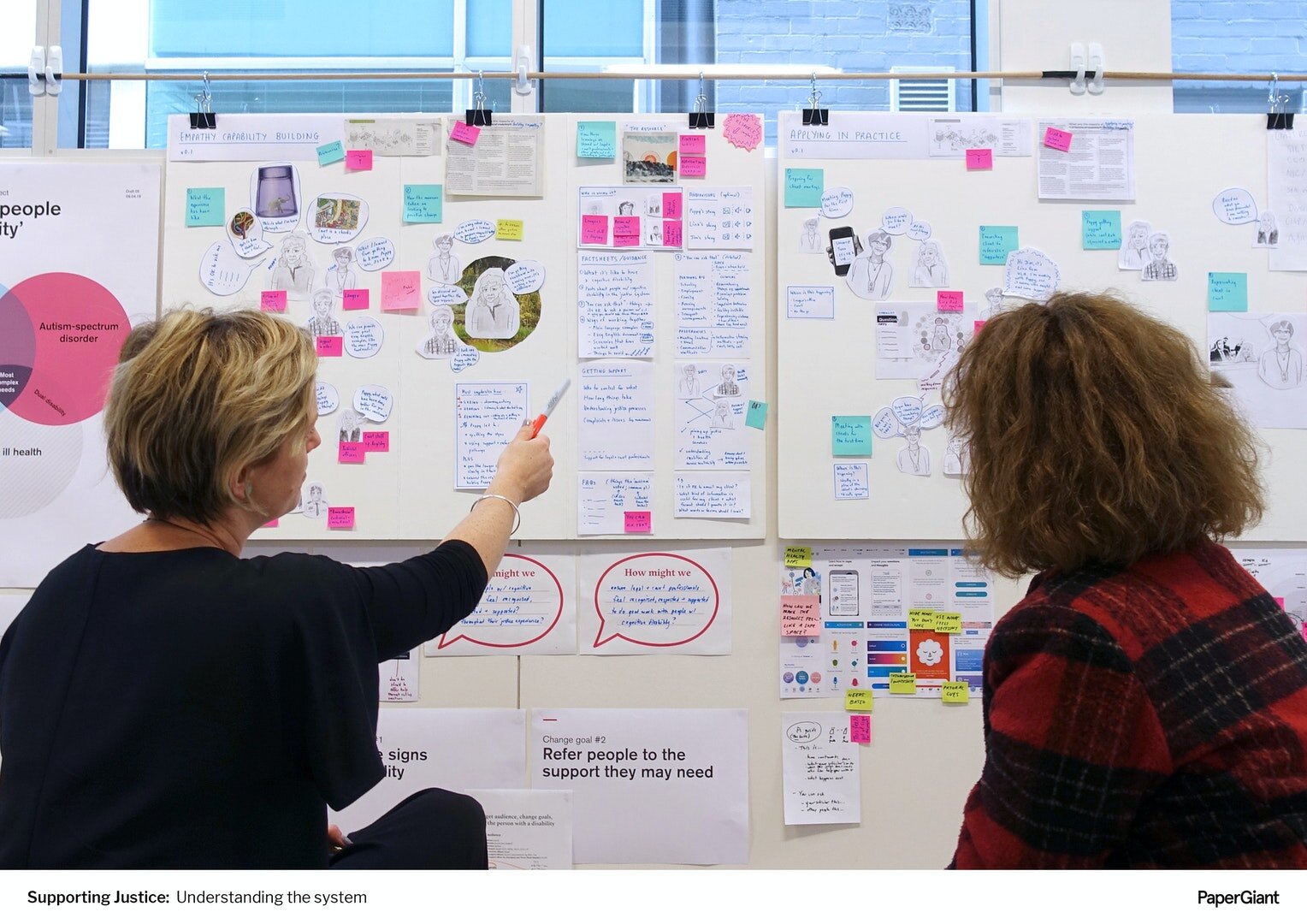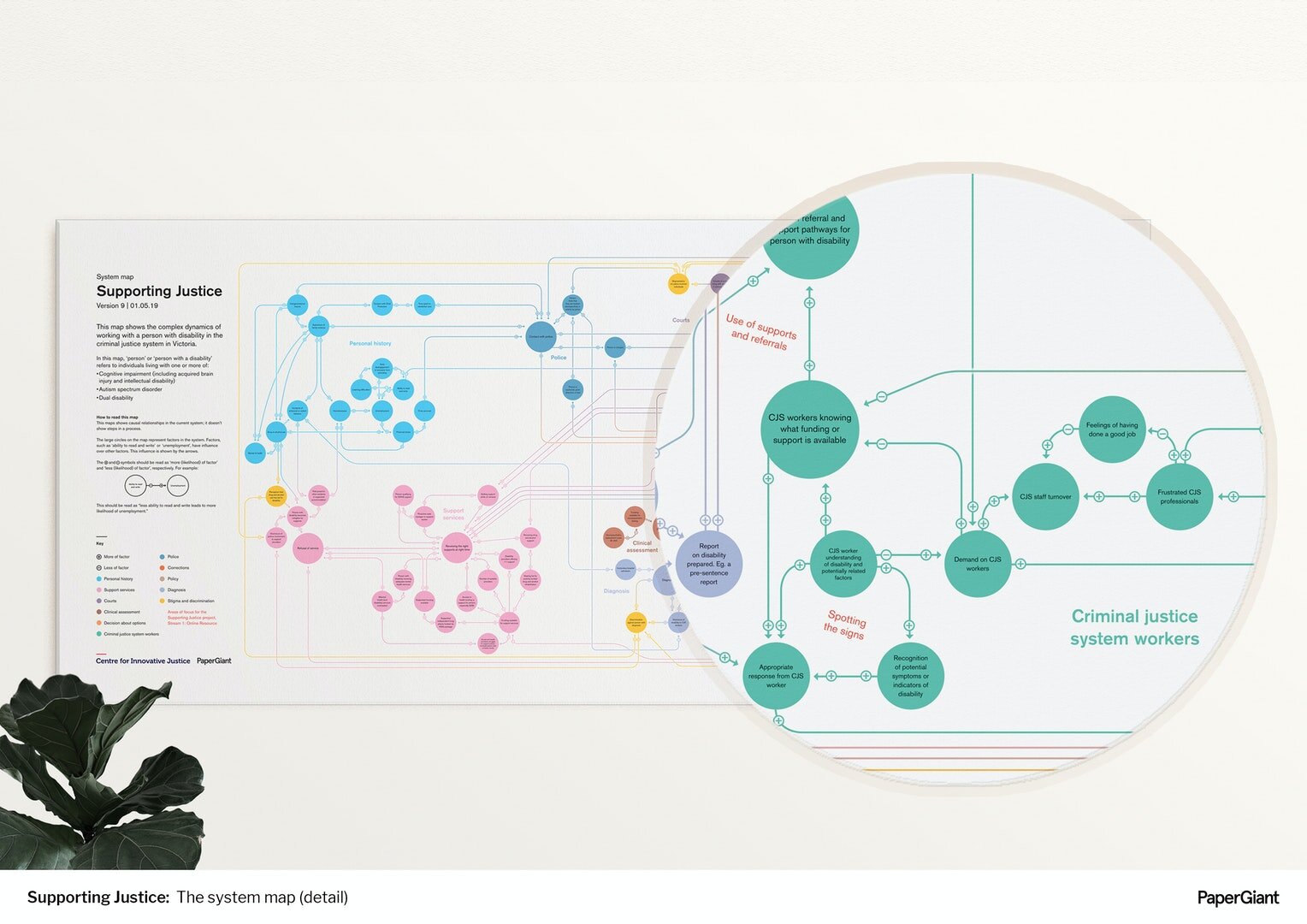Supporting Justice through Systemic Design
The Supporting Justice project aims to improve the criminal justice system’s responses to disability and mental health in Victoria, Australia. Led by RMIT University’s Centre for Innovative Justice (CIJ), the project is centred on the experiences of people with cognitive disability and justice involvement. It brings together people with lived experience and stakeholders from the justice, health and disability sectors to work collaboratively on designing change.






Supporting Justice won a Gold Good Design Award in the Social Impact category in 2020.
I led the co-design and evaluation within the Supporting Justice partnership between CIJ and Paper Giant over ten months in 2019. Our team blended systems mapping, design research, participatory design and developmental evaluation to create and iterate systems level interventions that aim to provide people with the support they need before they end up in cycles of disadvantage. Working with a team member with lived experience alongside digital and communication designers, we developed and visualised knowledge of the criminal justice system, identified key leverage points, and developed concepts and prototypes emerging from co-design activities. I designed and facilitated workshops with senior stakeholders from the justice and disability sectors -- including magistrates, lawyers and public sector managers -- alongside participants with experience of cognitive disability, mental ill-heath and justice involvement.
A key output from our work is SupportingJustice.net, a website that provides practical resources for legal and court professionals and people with disability. Designed for ease of access and distribution, and provided in Easy English and standard versions, the website’s resources help connect people with disability in the criminal justice system with support, creating the opportunity for fairer outcomes.
Early evaluation demonstrated that the project was beginning to bring about system-wide change in three key ways:
Seeing the system. Engagement activities helped stakeholders understand how justice and related systems and services interconnect and affect people with disability.
Collaborating for change. The use of collaborative and creative engagement methods fostered relationships and built momentum towards tangible change.
Thinking and acting inclusively. By putting people with lived experience at the centre of the project, stakeholders built awareness, empathy and motivation for transformative change in the criminal justice system.
This project is leading to better outcomes for people with disability in the criminal justice system in Victoria.
What participants said about Supporting Justice
“I think you are doing a good job in this field. I hope people will pick it up and use what you design. I would like to offer my services if I can help further.”
— Person with lived experience of disability and justice involvement
“[The co-design workshop] confirmed it’s fundamentally difficult for people to navigate the system with understanding, comprehension and feeling respected and fairly treated.”
— Magistrate
“I was surprised by the stories of those with lived experience and found it to be invaluable to discuss their experiences with us.”
